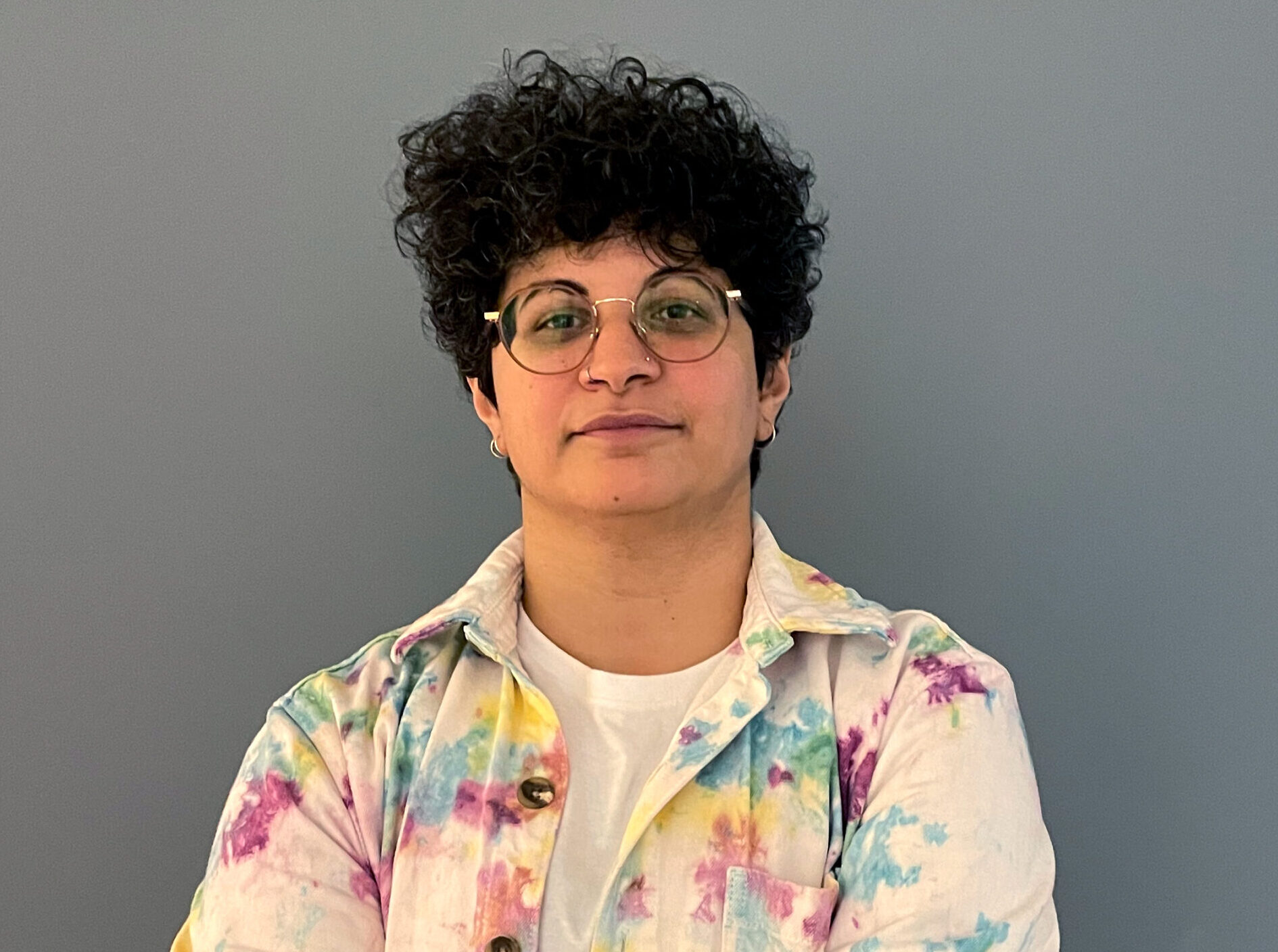Take a closer look at the artistic connections within the Greater Toronto Area with the second edition of MOCA Toronto’s triennial exhibitions, titled GTA24. Across the museum’s three floors, a series of artworks including Sharlene Bamboat’s film Both, Instrument & Sound will be presented.
The 16mm film follows the life of now 80-year-old Toronto activist Tony from the 1970s onwards, exploring the tensions and transformations of solidarity movements and politics in the city over the past decades. “Through these stories, you really learn about [Tony’s] transformation on aging and growing up, along with the transformation of the city,” Bamboat says.
As a friend of Tony’s for about a decade, Bamboat was most interested in accurately framing his life. “My partner, Natalie, Tony and I have this triangulated relationship like family between the three of us. We met while working in this queer Palestine group in Toronto and I was really thinking about how to document the life of my friend who is like a queer elder.”
As foretold by Bamboat, Tony moved from India to Canada in the 70s and laid the ground for social activists in Toronto. Best known for his work battling racism and homophobia within the Toronto District School Board, Tony remains an integral part of the city’s history.
View this post on Instagram
Filming for Both, Instrument & Sound started in 2020 as Bamboat followed their shared moments around Montreal and Toronto. With the editing process ending just last October, this three-year project was truly a collaborative effort. “I wanted to document his life, I just asked him questions and he was a real talker. He had so many stories he could talk about,” she says.
While the body of work presented at MOCA Toronto follows the untold stories of artists in the GTA, Bamboat narrates the city in her own way. “I didn’t think I was making a film about Toronto but actually now that I look at it, it is a very specific kind of queer Toronto,” Bamboat describes. “[Tony] also talks of what it means to organize with people who share similar values, similar to a transnational solidarity.”
In the face of growing individualism in the West, this film pushes a collective narrative further, blending together collaborative efforts from musicians, cast members, and instruments. Without oversimplifying topics, Bamboat took many political issues into consideration when creating the film.
“I’ve been really thinking about this for the last few years of what it means to be in solidarity […] I think because I collaborate with a lot of people, it has allowed me to work from various perspectives,” she says.
Working in various art scenes in both Toronto and Montreal, Bamboat’s artistic practices have extended to artist-run organizations and collectives with artists locally and internationally. When navigating an angle for Both, Instrument & Sound, she drew from her experiences working at a women’s refugee center in Montreal, the South Asian Visual Arts Center in Toronto, and the Toronto Queer Festival.
“All my life I tried to think I was learning as I get older, that everything I do filters into the work that I make,” she elaborates. “So a part of the prompt of this film was ‘what does solidarity sound like?’ I mean, there’s no one answer, but it was an interesting exercise to think about with all involved in the film.”



 Follow Us On Instagram
Follow Us On Instagram
